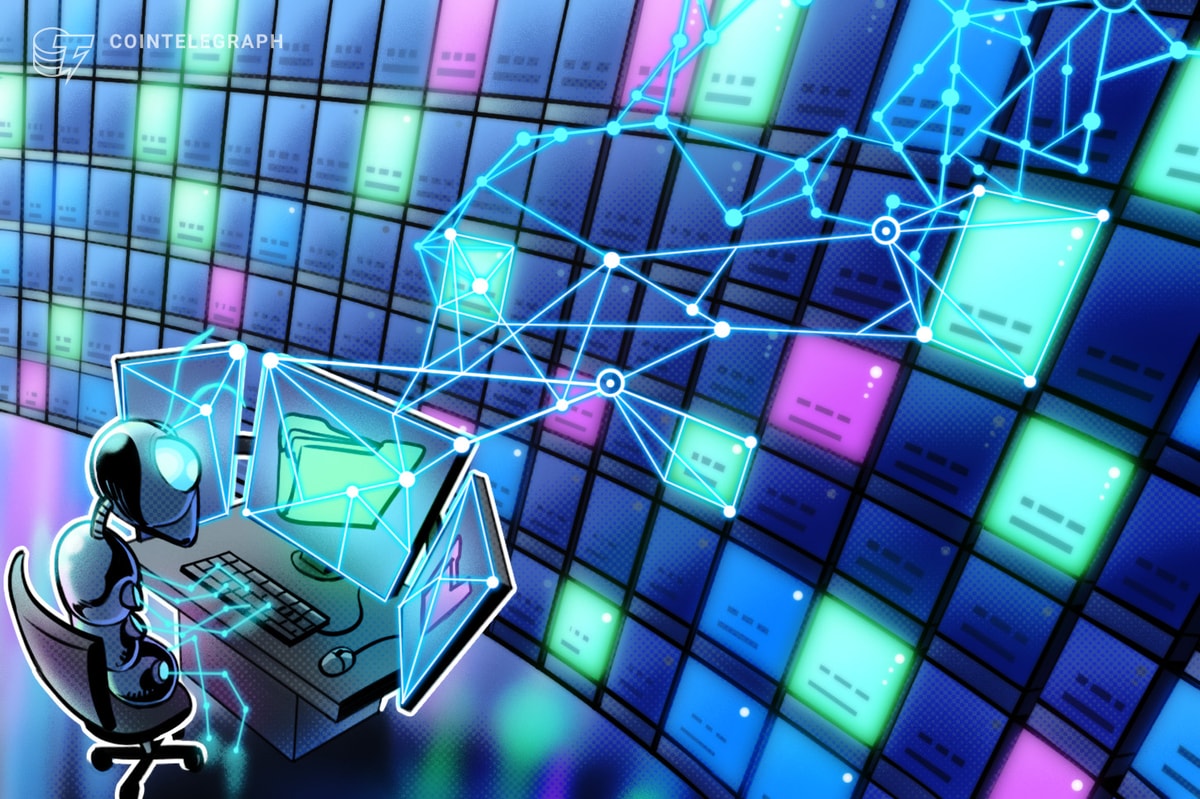Control, not just ownership, is the goal in Web3. Ownership alone is not sufficient in the decentralized future.
Opinion
Opinion by: Riccardo Sibani, chief product officer at My Neighbor Alice
If you were to ask professionals in and around the Web3 space what drives the industry, many would say ownership. They’d tell you that decentralization will empower us to own our data, assets and digital identities. Some might even argue that this promised ownership would be the great emancipator and great leveler, helping us break free from the known shortcomings of centralized control and systems.
They’re not entirely wrong, but they’re overlooking a critical point: Ownership is not enough.
Ownership and control
Ownership is passive. It can be a title, claim or possession. What defines power, especially in the digital age, is not ownership but control.
Control is active. The entity that can manage, modify and make unchallenged decisions about the fate of their possessions is an owner with genuine control. Ownership without control is but an illusion. It is the façade of freedom. It lacks substance.
Markus Kuhnert, CEO of 1iO — which is building the foundation of decentralized collaboration — recently stressed that Web3’s primary goal should be giving users complete control over their data. “Web3 is all about cutting out the middleman economy,” he said. “It’s about ownership, owning the data, owning the infrastructure.” 1iO’s official stance is, “We eliminate intermediaries. You individually decide with whom you want to share your data and under what conditions.” That is an ideal that Web3 needs to uphold.
Kuhnert is right, by the way. It is up to Web3 builders, investors, users and those curious enough to experiment with the technology to think more about what control means to them. There was ownership in Web2 but no control, so it was hollow. There were accounts, posts, followers, books and songs, and it really felt like it belonged to us, but the platforms always controlled it — we didn’t. This lack of user control was the biggest failure of Web2, and the thought of Web3 repeating it is dreadful.
Just look at X (formerly Twitter). It was acquired, changed its name to X, enforced massive algorithm changes — which pleased some and alienated others — and some people who had spent years building audiences walked away frustrated. The users never had control. They were exposed to the harsh reality that algorithms can change, accounts can be banned, and platforms can go bust or be acquired overnight. Your follower count suddenly became meaningless. These are (still) Web2’s inherent risks.
Ownership without control
Ownership without control is, as Web2 has proven, virtually ineffective and leaves users vulnerable. In the Web3 gaming or GameFi space, there’s a massive push for the right to ownership and control, to create, modify, upgrade and export (to other games and chains) your digital assets — profit from them even.
Recent: Web3’s role in protecting digital rights and privacy
A gamer with that level of control transcends gaming. They become a creator, owner and controller. In many cases, they can join a game’s decentralized autonomous organization to, democratically and trustlessly, modify the game based on community-centric ideation.
Recently, platforms have been improving at using decentralized tools that empower community members to explore other platforms and decentralized applications with their interoperable data and assets, tackling the “lonely island” problem. Blockchain operators are working toward giving users the controls to reshape and reimagine their digital experience in their vision, a refreshing take. It certainly beats corporate giants, algorithms and advertisers making crucial decisions on behalf of their users.
Enabling this level of control should empower new users who want to push it to the limits and become intrepid Web3 explorers. The aim is for them to feel inspired to use this newfound autonomy to ask and answer big questions beyond ownership.
Unfortunately, progress is often met by poor design. Web3 may have overcome traditional economic systems, thanks to direct monetization without intermediaries, but it still requires flexible frameworks for the creators and data owners. Some platforms are failing to meet this ideal by imposing restrictive or miserly revenue-sharing agreements and limited transaction options on the creators. Welcome to Web2’s downfall.
The market implications for Web3 games that don’t give players enough control or incentives can be severe, and it could be why the GameFi space was one of the worst performers in Q2 2024. Fortunately, the transparent and vocal nature of the decentralized space allows problems to be exposed and fixed quickly; otherwise, platforms will end up being beautiful deserts. Also, the tide can turn fast, and some analysts suggest that 2025 could see Web3 games achieve parabolic growth.
In the Web3 era, control will define the genuinely decentralized future. Platforms will no longer dictate the terms — users and creators will. Control is the principle that will shape the next evolution of the internet. A decentralized future is on the horizon, and people will not be content with ownership alone. They’ll demand control.
Opinion by: Riccardo Sibani, chief product officer at My Neighbor Alice.
This article is for general information purposes and is not intended to be and should not be taken as legal or investment advice. The views, thoughts, and opinions expressed here are the author’s alone and do not necessarily reflect or represent the views and opinions of Cointelegraph.
This article first appeared at Cointelegraph.com News


